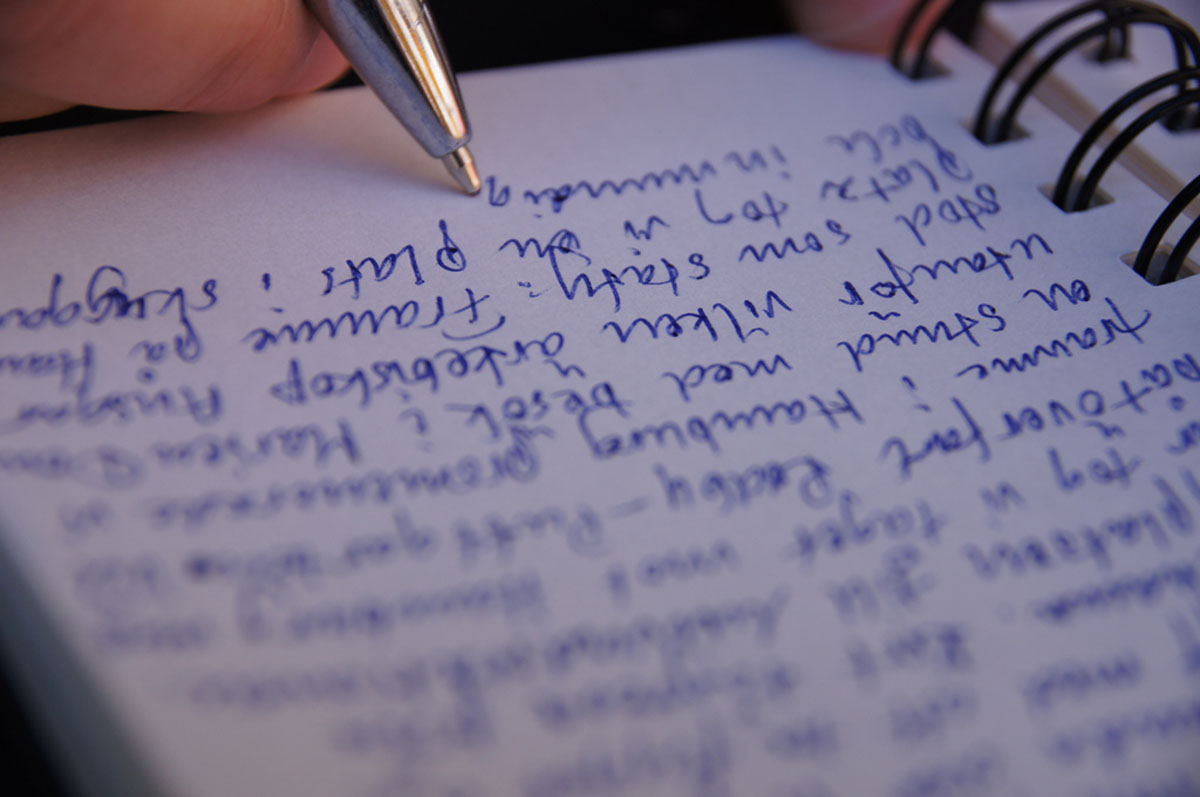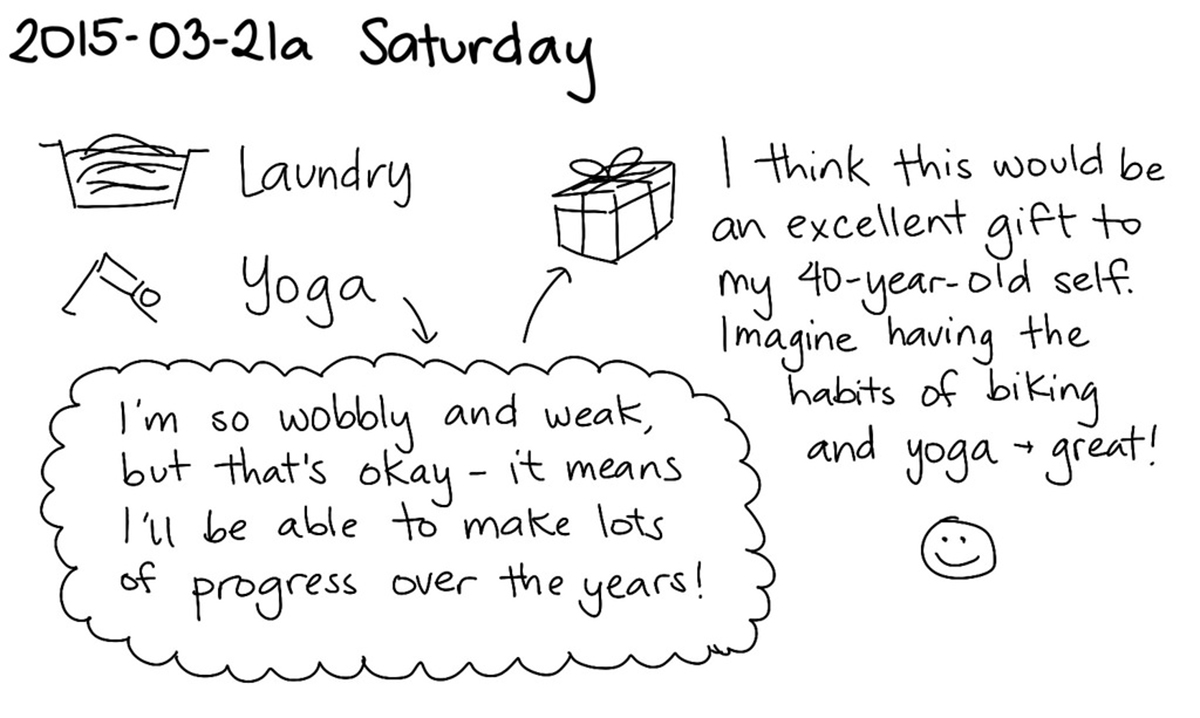There is a surprisingly large number of scientific studies that confirm that people who write about themselves enjoy better health outcomes. Journaling and expressive writing have been known to improve mood disorders, such as depression and bipolar disorder. These activities can be helpful for cancer patients struggling to deal with their symptoms and the side effects of their treatment, and they can accelerate recovery from heart attacks and boost memory.

Examination, Not Just Recitation
Researchers have found that it isn't just writing one's personal story that makes a difference in health outcomes. Rewriting one's personal story is the activity that leads to greater happiness, changes in health-related behaviors, and better medical outcomes.
Why Should Writing (or, More Precisely, Rewriting) Life History Lead to Better Health?
The idea behind keeping a journal or a diary to influence how we feel and how well our bodies respond to disease is that we all have a personal narrative that shapes how we see the world and how we see our lives. Sometimes, however, our inner voice gets it wrong. Writing, and rewriting, our personal stories helps us identify obstacles that impeded our progress toward better health. It may sound like aerie-fairy New Age nonsense, but there is objective evidence that the method works.
- In the United States, the Veterans Writing Project trains Iraq and Afghanistan veterans who had traumatic brain injuries to reconsider and reshape their memories of the events that caused their disabilities. The advantage of expressing themselves with pen and paper or at a keyboard for many former soldiers who have brain injuries is that words flow more smoothly in writing than in speech. Men and women in the program can organize their thoughts so they can think through their situations more clearly and better communicate with family members, caregivers, and friends.
- Researchers at the University of Texas MD Anderson Cancer Center asked renal cancer patients to write about either their deepest thoughts or a neutral topic immediately after thier treatments, and one, four, and ten months later. The researchers found that the patients who wrote essays on their most intensely felt issues had lower scores on a pyschological test called the Impact of Event Scale, probably because they spent more time "processing" their experience.
- Psychologists at the University of Texas at Austin found that college students who had tendencies toward depression showed fewer symptoms of depression six months after spending three consecutive days in a writing workshop in which they were given opportunities to examine and express their emotions and experience of life.
In most of these studies, participants are asked to write about their old life stories, and then to reflect on them and rewrite the story.
See Also: De-Stress: Create A Comedy Workout!
How You Can Use Expressive Writing to Achieve Your Own Health Goals
It is not necessary to have suffered depression, cancer, obesity, or traumatic brain injury to benefit from writing as a tool to achieve your own health goals. Most people get better results from writing with pen and paper, because it takes longer and gives the writer more time to think, but if you are more adept at typing than at writing in longhand, or if you just cannot read your own handwriting, writing at a computer is OK.

Most people can benefit from writing a personal mission statement for most aspects of their lives, including their health. A mission statement is not a collection of resolutions, like the kind most of make around New Year's Day. Resolutions are well-intended action plans, but if they are not connected to the "why" of making changes in one's health or in one's life, they are likely to fall by the wayside, and most do. Mission statements give the reasons for making resolutions, and make it is easier to make mid-course adjustments in new health habits or new lifestyle choices when they become hard to follow.
When temptation stands in the way of keeping a resolution, the mission statement is the guide for what to do next. An overweight person may resolve to lose weight, but have trouble driving past the doughnut shop. There will eventually be a day that a little extra time at the gym may seem to justify a stop for just one doughnut at the doughnut shop, after all, those calories have already been burned off. A personal mission statement, such as "I will achieve a healthy, normal weight" serves as the criterior for making choices that support resolutions. Instead of "Just one doughnut can't hurt," the thinking becomes "I make all my choices for a healthy lifestyle".
- The first step in creating a mission statement is clarifying values. For losing weight, resolving to eat less and exercise more does not reveal the underlying values for making the change. Maybe you want to look better. In this case, your mission statement is not "I will eat less" or "I will work out more" but "I will make choices that help me look better." Maybe you want to have better health. Then your mission statement becomes "I make choices for better health." Some people work with personal coaches, during this process, but it is not absolutely necessary to have help in answering these questions.
- The second step in creating a mission statement is refining your values statement. You may gain insight into "what it's all about" by asking certain questions. How do you want people to describe you, or to remember you? What matters the most to you? Who do you want to be? What makes your life worth living? These may seem like "soft" questions, but most people find answering them to be hard work.
- The third step in creating a mission statement is validating it with choices you make every day. This goes beyond keeping resolutions. You use your personal mission statement as the guide for all the decisions you make.
See Also: Too Much: Excessive Exercise Can Damage Your Health. How Can You Tell If You're Overdoing It?
There will always be obstacles to achieving your goals, but you can never overcome your obstacles if you cannot define your goals. Writing about how you feel, and then making a plan to deal with the implications of your self-examination, can help you define and achieve your goals in life and health.
- Gortner EM, Rude SS, Pennebaker JW. Benefits of expressive writing in lowering rumination and depressive symptoms.Behav Ther. 2006 Sep. 37(3):292-303. Epub 2006 May 30.
- Milbury K, Spelman A, Wood C, Matin SF, Tannir N, Jonasch E, Pisters L, Wei Q, Cohen L. Randomized controlled trial of expressive writing for patients with renal cell carcinoma. J Clin Oncol. 2014 Mar 1. 32(7):663-70. doi: 10.1200/JCO.2013.50.3532. Epub 2014 Jan 27. PMID: 24470003
- Photo courtesy of freddie boy via Flickr: www.flickr.com/photos/froderik/9355090806
- Photo courtesy of Sachac via Flickr: www.flickr.com/photos/sachac/16691123307


Your thoughts on this